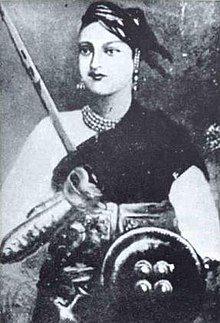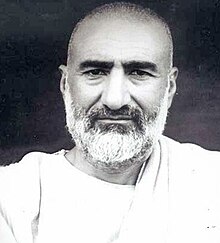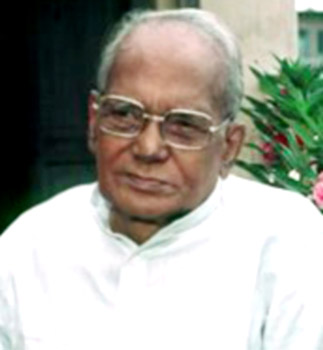UP Election 2012: The fourth phase Rnberi ringing!
आज देश मैं एक बवाल सा आया हुआ है ? ६५ सालों के बाद जब सर्कार ने मुस्लिम को आरक्षण का झुनझुना दिखाया है तब देश मैं हाय तोबा मची है , इसकी वजह हम खुद हैं क्यूँ की हम आज तक देश मैं रफ़ी साहिब जैसा कद्दावर नेता नहीं चुन पाए ?
Wednesday, 25 January 2012
उत्तर प्रदेश में चुनावी दंगल ,राहुल -अखिलेश का युवा नेतृत्व
 उत्तर प्रदेश की चुनावी राजनीति का पारा दिन प्रति दिन तेज़ी से बढ़ता ही जा रहा है | विधान सभा के आम चुनावो में हर हाल में चुनाव जीतने की ललक में राजनीतिक दलों ने तमाम स्वार्थी , दल बदलुओं ,सिधान्त हीन व आपराधिक प्रवृति के लोगो को बगलगीर करने में , गले लगाने में तनिक भी परहेज़ नहीं किया है | निश्चित रूप से प्रत्येक चुनाव प्रत्याशी व राजनीतिक दलों के लिए जीत हासिल करने के दृष्टिकोण से महत्व पूर्ण होता है |
उत्तर प्रदेश की चुनावी राजनीति का पारा दिन प्रति दिन तेज़ी से बढ़ता ही जा रहा है | विधान सभा के आम चुनावो में हर हाल में चुनाव जीतने की ललक में राजनीतिक दलों ने तमाम स्वार्थी , दल बदलुओं ,सिधान्त हीन व आपराधिक प्रवृति के लोगो को बगलगीर करने में , गले लगाने में तनिक भी परहेज़ नहीं किया है | निश्चित रूप से प्रत्येक चुनाव प्रत्याशी व राजनीतिक दलों के लिए जीत हासिल करने के दृष्टिकोण से महत्व पूर्ण होता है |
स्वदेशी आंदोलन
स्वदेशी (बंगाली: স্বদেশী: हिंदी, स्वदेशी) आंदोलन, भारतीय स्वतंत्रता आंदोलन का हिस्सा है, एक आर्थिक सत्ता से ब्रिटिश साम्राज्य को हटाने और स्वदेशी के सिद्धांतों (आत्मनिर्भरता) का पालन करके भारत में आर्थिक स्थिति में सुधार लाने के उद्देश्य से रणनीति थी, जो कुछ सफलता मिली. स्वदेशी आंदोलन की रणनीति ब्रिटिश उत्पादों और घरेलू उत्पादों और उत्पादन प्रक्रियाओं के पुनरुद्धार का बहिष्कार शामिल किया गया.
झांसी की रानी लक्ष्मीबाई
 यह लेख विकिपीडिया के गुणवत्ता मानकों को पूरा करने के लिए सफाई की आवश्यकता हो सकती है. (अधिक विशिष्ट सफाई निर्देश का उपयोग पर विचार करें.) यदि आप कर सकते हैं इस लेख में सुधार करने में मदद करें. बात पृष्ठ सुझाव हो सकता है. (अक्टूबर 2010)
यह लेख विकिपीडिया के गुणवत्ता मानकों को पूरा करने के लिए सफाई की आवश्यकता हो सकती है. (अधिक विशिष्ट सफाई निर्देश का उपयोग पर विचार करें.) यदि आप कर सकते हैं इस लेख में सुधार करने में मदद करें. बात पृष्ठ सुझाव हो सकता है. (अक्टूबर 2010)
झांसी की रानी लक्ष्मीबाई
झांसी की रानी
रानी युद्ध गियर में सज
जन्म नाम मणिकर्णिका
19 नवम्बर 1835 को जन्मे
जन्मस्थान काशी, वाराणसी, भारत
17 जून 1858 को मृत्यु
मृत्यु ग्वालियर, भारत के प्लेस
पूर्ववर्ती रानी राम बाई
उत्तराधिकारी ब्रिटिश राज
झाँसी नरेश महाराज गंगाधर राव Newalkar के लिए पति
Hasrat Mohani - Life
Early life
Maulana Hasrat Mohani (1875–1951) (Urdu: مولانا حسرت موہانی) was a Romantic Poet of Urdu language, journalist, politician, parliamentarian and a fearless freedom fighter of Indian Sub-continent .
His real name was Syed Fazl ul Hasan. He was born in 1875 at Mohan in Unnao district of U.P. India.
Career
Maulana Hasrat Mohani was a brilliant and hardworking student as well as a topper in his first state level exams. Later, he studied in Aligarh Muslim University, where some of his colleagues were Molana Mohammad Ali Johar and Molana Shaukat Ali. His teachers in poetry were Tasleem Lucknawi andNaseem Dehlvi.
A few of his books are Kulliyat-e-Hasrat Mohani (Collection of Hasrat Mohani's poetry), Sharh-e-Kalam-e-Ghalib (Explanation of Ghalib's poetry), Nukaat-e-Sukhan (Important aspects of poetry),Mushahidaat-e-Zindaan (Observations in Prison), etc. A very popular ghazal sung by Ghulam Ali, Chupke Chupke Raat Din was penned by him, also featured in film, Nikaah (1982).
अबुल कलाम आजाद
अबुल कलाम आजाद
शिक्षा मंत्री कार्यालय में 15 अगस्त 1947 - 1958 प्रधानमंत्री जवाहर लाल नेहरू व्यक्तिगत विवरण 11 जन्मे नवम्बर 1888 मक्का मृत्यु के 22 फरवरी 1958 (69 वर्ष की आयु) दिल्ली, भारत मौलाना अबुल कलाम Muhiyuddin अहमद आजाद (उर्दू: مولانا ابوالکلام محی الدین احمد آزاد) एक भारतीय मुस्लिम विद्वान और theIndian स्वतंत्रता आंदोलन के एक
Abul Kalam Azad - Life
Abul Kalam Azad
From Wikipedia, the free encyclopedia
| This article needs additional citations for verification. Please help improve this article by adding citations to reliable sources. Unsourced material may be challenged and removed. (September 2011) |
| Maulana Abul Kalam Azad | |
|---|---|
 | |
| Minister of Education | |
| In office 15 August 1947 – 1958 | |
| Prime Minister | Jawahar Lal Nehru |
| Personal details | |
| Born | 11 November 1888 Makkah |
| Died | 22 February 1958 (aged 69) Delhi, India |
Maulana Abul Kalam Muhiyuddin Ahmed Azad (Urdu: مولانا ابوالکلام محی الدین احمد آزاد) was an Indian Muslim scholar and a senior political leader of theIndian independence movement, who lived from 11 November 1888 – 22 February 1958. He was one of the most prominent Muslim leaders to supportHindu-Muslim unity, opposing the partition of India on communal lines. Following India's independence, he became the first Minister of Education in the Indian government. He is also known for having predicted the future military rule and partition of Pakistan before its independence.[1] He was posthumouslyawarded India's highest civilian
मौलवी बरकतुल्ला
विकिपीडिया, एक मुक्त ज्ञानकोष से
मौलवी अब्दुल हफीज मोहम्मद Barakatullah या मौलाना बरकतुल्ला (7 सी. +१८५४ जुलाई - 20 सितंबर 1927) एक कट्टर विरोधी ब्रिटिश पान इस्लामी आंदोलन के लिए सहानुभूति के साथ भारतीय क्रांतिकारी था. बरकतुल्ला 7 जुलाई, का जन्म 1854 Itwra मोहल्ला भोपाल में मध्य प्रदेश, भारत में.बरकतुल्ला भारत के बाहर से लड़े, ज्वलंत और भाषण प्रमुख समाचार पत्रों में क्रांतिकारी लेखन के साथ भारत की स्वतंत्रता के लिए. प्रतिकूल परिस्थितियों और निराशा के चेहरे में भी,
Tuesday, 24 January 2012
Maulavi Barkatullah Life
Maulavi Barkatullah
From Wikipedia, the free encyclopedia
Maulavi Abdul Hafiz Mohamed Barakatullah or Maulana Barkatullah (c. 7 July 1854 – 20 September 1927) was a staunch anti-British Indian revolutionary with sympathy for the Pan-Islamic movement. Barkatullah was born on 7 July 1854 at Itwra Mohalla Bhopal in Madhya Pradesh, India. Barkatullah fought from outside India, with fiery speeches and revolutionary writings in leading newspapers, for the independence of India. Even in the face of adversity and discouragement, Barkatullah rose to a position of pre-eminence in more than one sphere of life by sheer force of merit and hard work. He did not live to see India free but his contribution did bring independence much nearer
Jayaprakash Narayan
Jayaprakash Narayan
From Wikipedia, the free encyclopedia
This article is about the Indian independence activist and politician. For the other Indian politician, see Jayaprakash Narayan (Lok Satta).
| bharat ratna, Loknayak Jayaprakash Narayan | |
|---|---|
| Born | 11 October 1902 Sitab Diara, Bihar, India |
| Died | 8 October 1979 (aged 76) Patna, Bihar, India |
| Nationality | Indian |
| Other names | JP Narayan, Jayaprakash, Loknayak |
| Organization | Indian National Congress,Janata Party |
| Political movement | Indian Independence movement, Sarvodaya movement, Emergency movement |
| Signature | |
Jayaprakash Narayan (Devanāgarī: जयप्रकाश नारायण; 11 October 1902 – 8 October 1979), widely known as JP Narayan, Jayaprakash, or Loknayak, was an Indian independence activist and political leader, remembered especially for leading the opposition to Indira Gandhi in the 1970s and for giving a call for peaceful Total Revolution. His biography, Jayaprakash, was written by his nationalist friend and an eminent writer of Hindi literature, Ramavriksha Benipuri. In 1998, he was posthumously awarded the Bharat Ratna, India's highest civilian award, in recognition of his social work. Other awards include the Magsaysay award for Public Service in 1965. The airport of Patna is also named after him.
Azad Hind
Azad Hind
From Wikipedia, the free encyclopedia
- This article describes the organisation formed during World War II in Singapore. For the Provisional Government formed by Raja Mahendra Pratap during World War I, see Provisional Government of India.
| Provisional Government of Free India आर्ज़ी हुक़ूमत-ए-आज़ाद हिन्द عارضی حکومتِ آزاد ہندĀrzī Hukūmat-e-Āzād Hind | |||||
| Provisional government supported by Japan | |||||
| |||||
| |||||
| Anthem Subh Sukh Chain | |||||
|
Green: Territory controlled (with Japanese assistance)
Light green: Territory claimed
| |||||
| Capital | Port Blair (provisional) | ||||
| Capital-in-exile | Rangoon Singapore | ||||
| Language(s) | Hindustani | ||||
| Government | Provisional government | ||||
| Head of State | |||||
| - 1943-1945 | Subhas Chandra Bose | ||||
| Prime Minister | |||||
| - 1943-1945 | Subhas Chandra Bose | ||||
| Historical era | World War II | ||||
| - Established | 21 October 1943 | ||||
| - Disestablished | 18 August 1945 | ||||
| Currency | Azad Hind Rupee | ||||
Ārzī Hukūmat-e-Āzād Hind (Hindi: आर्ज़ी हुक़ूमत-ए-आज़ाद हिन्द, Urdu: عارضی حکومتِ آزاد ہند, the Provisional Government of Free India), simplyFree India[1][2] or Azad Hind, was an Indian provisional government established in
Politics(pre independence) Rafi Ahmed Kidwai
Early life
He was born on 18 February 1894 in the village of Masauli, in Barabanki district, United Provinces, India, the eldest of four sons of Imtiaz Ali Kidwai, a middle-class zamindar (or landowner) and government servant, and his wife, Rashid ul-Nisa, who died during his early childhood. He received his early education from a tutor at the home of his uncle, Wilayat Ali, a politically active lawyer, and in the village school. He attended the Government High School, Barabanki, until 1913. He then attended the Mohammadan Anglo-Oriental College, Aligarh, where he graduated BA in 1918. He began work towards the degree of LLB, but,
Rafi Ahmed Kidwai [1894-1954] : freedom fighter
 Rafi Ahmed Kidwai was born in February 1894 to a middle-class Zamindari family in the village of Masauli in Barabanki district of Uttar Pradesh. His family traced its lineage to the entourage of Mohammad Ghazni. In his childhood, he was tutored by his uncle Vilayat Ali. He enrolled in the M.A.O. College at Aligarh in 1916 and successfully graduated with a B.A degree in 1918. He thought of pursuing law studies but was immensely influenced by Mahatma Gandhi's call to join the Non-Cooperation Movement. Once again, his uncle Vilayat Ali served as his mentor to expose him to the two organizations leading the freedom struggle- the Congress and the Muslim League and their main leaders.
Rafi Ahmed Kidwai was born in February 1894 to a middle-class Zamindari family in the village of Masauli in Barabanki district of Uttar Pradesh. His family traced its lineage to the entourage of Mohammad Ghazni. In his childhood, he was tutored by his uncle Vilayat Ali. He enrolled in the M.A.O. College at Aligarh in 1916 and successfully graduated with a B.A degree in 1918. He thought of pursuing law studies but was immensely influenced by Mahatma Gandhi's call to join the Non-Cooperation Movement. Once again, his uncle Vilayat Ali served as his mentor to expose him to the two organizations leading the freedom struggle- the Congress and the Muslim League and their main leaders.Dating back at least 5000 years,
 Dating back at least 5000 years, civilization in India has been a rich and complicated mix of peoples and religions. Harappa and Mohenjodaro were ancient Indian cities which existed between 3000 to 1500 BC. The Gupta dynasty ruled over a golden age for north India for about two hundred years (320-544 A.D.). In the 600s, the Indus River Valley was invaded by Arabs, who brought with them Islam, which took hold in northern India. The Sultanate of Delhi was established in 1206. In 1526, Babur established the Moghul empire, whose culture thrived under Akbar the Great. British rule in India began in the AD 1700s. Foreign domination engendered Indian nationalism, which eventually led to India winning its independence in 1947.
Dating back at least 5000 years, civilization in India has been a rich and complicated mix of peoples and religions. Harappa and Mohenjodaro were ancient Indian cities which existed between 3000 to 1500 BC. The Gupta dynasty ruled over a golden age for north India for about two hundred years (320-544 A.D.). In the 600s, the Indus River Valley was invaded by Arabs, who brought with them Islam, which took hold in northern India. The Sultanate of Delhi was established in 1206. In 1526, Babur established the Moghul empire, whose culture thrived under Akbar the Great. British rule in India began in the AD 1700s. Foreign domination engendered Indian nationalism, which eventually led to India winning its independence in 1947.
Mohandas Karamchand Gandhi was born on October 2, 1869 in Porbandar, India. He became one of the most respected spiritual and political leaders of the 1900′s. Gandhiji helped free the Indian people from British rule through nonviolent resistance, and is honored by Indians as the father of the Indian Nation. (Read his full bio here)
 He developed a method of action based upon the principles of courage, nonviolence and truth called Satyagraha. He believed that the way people behave is more important than what they achieve. Satyagraha promoted nonviolence and civil disobedience as the most appropriate methods for obtaining political and social goals. His philosophy influenced Martin Luther King and the civil rights movement in the United States and civil disobedience around the world. Millions enjoy greater freedoms today because of his
He developed a method of action based upon the principles of courage, nonviolence and truth called Satyagraha. He believed that the way people behave is more important than what they achieve. Satyagraha promoted nonviolence and civil disobedience as the most appropriate methods for obtaining political and social goals. His philosophy influenced Martin Luther King and the civil rights movement in the United States and civil disobedience around the world. Millions enjoy greater freedoms today because of his तस्वीरों में देखिएः जावेद अख्तर जयपुर लिटरेचर फेस्टिवल में ?
जयपुर लिटरेचर फेस्टिवल में पहुंचे जावेद अख्तर, गुलजार, प्रसून जोशी और विशाल भारद्वाज के साथ की कहानी पर चर्चा
जयपुर। लिटरेचर फेस्टिवल के चौथे दिन सोमवार को गीतकार और लेखक जावेद अख्तर भी भाग लेने पहुंचे। कहानी किसको कहते हैं सेशन में उन्होंने गुलजार, प्रसून जोशी और विशाल भारद्वाज के साथ कहानी पर लंबी बात की। इस सेशन में एक घंटा पहले से ही लोग जुटने लगे। कहानी क्या है के बारे में जावेद अख्तर ने कहा कि कहानी जब लिखी जाती है तो उसमें रहस्य और रोमांस होना चाहिए। लोगों को कुछ प्रेरणा मिलनी चाहिए। वो मौके साफ हों, जिनके लिए कहानी कही जाती है और ज्योग्राफी सपष्ट होनी चाहिए। किसी इलाके की बात की जा रही है।
जयपुर। लिटरेचर फेस्टिवल के चौथे दिन सोमवार को गीतकार और लेखक जावेद अख्तर भी भाग लेने पहुंचे। कहानी किसको कहते हैं सेशन में उन्होंने गुलजार, प्रसून जोशी और विशाल भारद्वाज के साथ कहानी पर लंबी बात की। इस सेशन में एक घंटा पहले से ही लोग जुटने लगे। कहानी क्या है के बारे में जावेद अख्तर ने कहा कि कहानी जब लिखी जाती है तो उसमें रहस्य और रोमांस होना चाहिए। लोगों को कुछ प्रेरणा मिलनी चाहिए। वो मौके साफ हों, जिनके लिए कहानी कही जाती है और ज्योग्राफी सपष्ट होनी चाहिए। किसी इलाके की बात की जा रही है।
जावेद का सवाल- किताब बैन लेकिन रुश्दी पर पाबंदी क्यों ?
 जयपुर. यहां चल रहे लिटरेचर फेस्टिवल में सलमान रुश्दी की वीडियो कॉन्फ्रेंसिंग अब नहीं होगी। वीसी रद्द किए जाने के पीछे कानून-व्यवस्था का हवाला दिया गया है। पुलिस के मुताबिक आयोजकों ने भरोसा दिया है कि रुश्दी की वीडियो कॉन्फ्रेंसिंग नहीं होगी। फेस्टिवल के आयोजक संजॉय रॉय ने कहा, ‘यह कहते हुए हमें
जयपुर. यहां चल रहे लिटरेचर फेस्टिवल में सलमान रुश्दी की वीडियो कॉन्फ्रेंसिंग अब नहीं होगी। वीसी रद्द किए जाने के पीछे कानून-व्यवस्था का हवाला दिया गया है। पुलिस के मुताबिक आयोजकों ने भरोसा दिया है कि रुश्दी की वीडियो कॉन्फ्रेंसिंग नहीं होगी। फेस्टिवल के आयोजक संजॉय रॉय ने कहा, ‘यह कहते हुए हमें
Subscribe to:
Comments (Atom)






